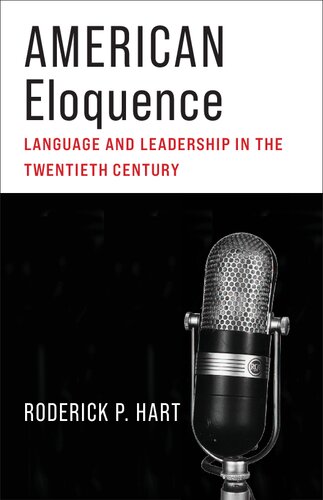

Most ebook files are in PDF format, so you can easily read them using various software such as Foxit Reader or directly on the Google Chrome browser.
Some ebook files are released by publishers in other formats such as .awz, .mobi, .epub, .fb2, etc. You may need to install specific software to read these formats on mobile/PC, such as Calibre.
Please read the tutorial at this link: https://ebookbell.com/faq
We offer FREE conversion to the popular formats you request; however, this may take some time. Therefore, right after payment, please email us, and we will try to provide the service as quickly as possible.
For some exceptional file formats or broken links (if any), please refrain from opening any disputes. Instead, email us first, and we will try to assist within a maximum of 6 hours.
EbookBell Team

5.0
38 reviewsWhat makes political speech powerful? How does eloquent rhetoric transcend ordinary language? Which stylistic choices allow effective orators to stir emotions and spur action? And in the age of Donald Trump, does political eloquence still matter?
This book examines a wide swath of political discourse to shed new light on the meaning and significance of eloquence. Roderick P. Hart, a leading scholar of political communication, develops new ways of measuring persuasiveness and rhetorical power through the use of computer-based methods. He examines one hundred of the most important speeches of the twentieth century, given by presidents and politicians as well as leaders, activists, and cultural figures including Martin Luther King Jr., Lou Gehrig, Mario Savio, Carrie Chapman Catt, and Stokely Carmichael.
Deploying the tools of the digital humanities as well as critical rhetorical analysis, Hart considers what distinguishes the linguistic properties of iconic oratory from those of more mundane texts. He argues that eloquence represents the confluence of cultural resonance, personal investment, and poetic imagination, providing empirical metrics for assessing each of these qualities. A quantitative and qualitative exploration of American political speech, this interdisciplinary book offers a powerful argument for why eloquence is essential for a functioning democracy.